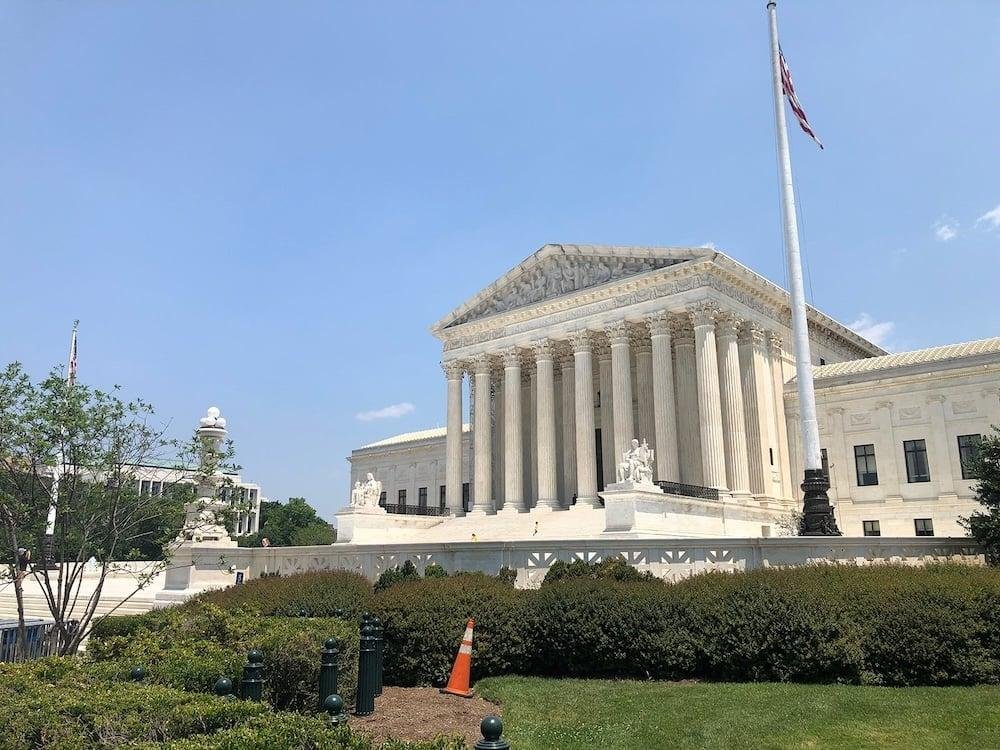border
Supreme Court Halts Return of Wrongly Deported Maryland Man, Temporarily

The Supreme Court placed a temporary hold on a midnight deadline requiring the U.S. government to return Kilmar Abrego Garcia, a Maryland resident who was mistakenly deported to a notorious prison in El Salvador. This decision came after a lower court found that Abrego Garcia faced serious persecution from local gangs if returned to his home country.
Abrego Garcia was part of deportation flights last month, which led to his transfer to a facility identified as a terrorism center despite a judge’s prior ruling intended to protect him. The Trump administration contested a Maryland judge’s order while arguing that it lacked legal authority to dictate the government’s foreign policy.
U.S. Solicitor General John Sauer stated, “While the United States concedes that removal to El Salvador was an administrative error, that does not license district courts to seize control over foreign relations.” He further argued that the court’s order to return Abrego Garcia was unprecedented and disrupted governmental diplomatic operations.
Chief Justice John Roberts issued a stay which halted the enforcement of the lower court’s order until the Supreme Court could review the emergency appeal by the administration. He requested a response from Abrego Garcia’s legal team by 5 p.m. Tuesday. Their reply was submitted shortly after the stay was granted.
Abrego Garcia’s legal representatives asserted that the real victim of this bureaucratic oversight is their client. They emphasized that he has never been charged with a crime and is not sought by El Salvador’s government. “He is a product of a Kafka-esque mistake,” they stated, highlighting the urgent need for his return.
Judge Stephenie Thacker, who was appointed by President Obama, criticized the government’s actions. She remarked that no legal authority permits the U.S. government to act without due process in removing individuals who are lawfully present in the country.
The administration’s legal team called for an emergency stop to the enforcement of the lower court’s ruling, suggesting that the potential harms to the government far outweighed the public interest in preventing wrongful removals.
Amid rising tensions, Justice Department attorney Erez Reuveni expressed frustration in court regarding the lack of information about the circumstances surrounding Abrego Garcia’s arrest and deportation. Complications within the department led to speculation about Reuveni’s status, as he was placed on leave over the weekend.
Abrego Garcia legally resided in the U.S. with permission from the Department of Homeland Security and had been working as a sheet metal apprentice prior to his arrest. His attorneys detailed that after a favorable ruling in 2019 which protected him from deportation, the government had not attempted to remove him until recently.
Following Secretary of State Marco Rubio’s designation of MS-13 as a foreign terrorist organization, the Trump administration had claimed Abrego Garcia was affiliated with the gang. However, his attorneys contested this assertion, pointing to questionable evidence tied to a confidential informant.
The Justice Department admitted the complexity of Abrego Garcia’s return, stating, “The Government of El Salvador has custody… so he cannot be returned unless the Government of El Salvador releases him.” The administration aimed to block the lower court’s order as it posed a risk of other courts potentially demanding similar actions in the future.
Overall, the situation raises critical questions about the balance of power among branches of government, particularly in matters concerning foreign relations and immigration enforcement.


















